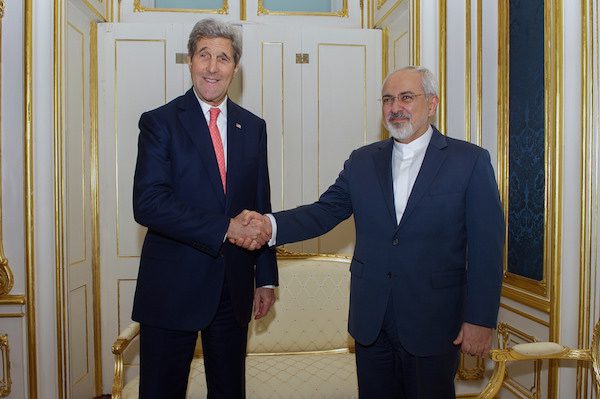The Nuclear Deal and the Freed Prisoners

U.S.-Iran diplomacy produced another good result over the weekend as four Americans detained in Iran were released as part of a prisoner exchange:
The negotiation over the prisoners began on the sideline of the nuclear talks, intensified after the deal was completed last April and heated up even further in recent months, senior administration officials told CNN.
The U.S. government confirmed Saturday that Iran freed four Americans as part of a prisoner swap for which the U.S. is dropping charges against seven Iranians who had been convicted in the U.S. for sanctions violations, the officials said.
It should be emphasized that the Americans being held in Iranian prison were wrongfully detained, and ideally they should never have been imprisoned in the first place. The important thing is that U.S. citizens that were unjustly imprisoned have been freed and will be able to return home. That should be something that all Americans can agree on.
But it is a testament to the value of the diplomatic channels created over the last two years that these Americans have now been freed. It is to the administration’s credit that they patiently and quietly worked for the release of these Americans while being routinely denounced by hard-liners at home for neglecting them. It shows how misguided it was for Iran hawks to insist on closely linking the nuclear talks to this dispute. We now see that it was possible to conclude a satisfactory nuclear deal while negotiating for the release of these Americans on a separate track. It further shows what determined, sustained diplomatic engagement can achieve when the diplomats are allowed to do their work. While the nuclear deal should be judged by the success it is having in restricting Iran’s nuclear program, this latest agreement shows that the deal may provide some ancillary benefits. Were it not for the larger success of the nuclear negotiations and the sanctions relief that went with it, it is doubtful that these talks would have been as successful as they were.
The news of the Americans’ release also helps explain why the U.S. delayed imposing sanctions related to recent Iranian missile tests, since applying the sanctions last year could very well have jeopardized an agreement on releasing the prisoners:
There was at least one final hiccup: the sanctions that the U.S. is expected to impose on Iran’s ballistic missile program. The Treasury Department originally intended to announce the sanctions on Dec. 30, a Wednesday. But that Tuesday, Dec. 29, Kerry spoke with Zarif, the Iranian foreign minister, to notify him. Zarif warned Kerry that the people who would be affected by the sanctions included some of the same people involved in the prisoner negotiations — and said that announcing the sanctions before the arrangement was complete could blow up the deal.
Top Obama administration officials decided to delay the sanctions to save the prisoner exchange talks.
Iran hawks from both parties have been excoriating the administration for the past two weeks over their “indulgence” of Iran on this issue, and now it turns out that the delay was entirely justifiable and helped produce a good result for the U.S. Iran hawks have been quick to deplore diplomatic engagement at every step, and each time they have been proven badly wrong. Keep that in mind over the next few months as we listen to the hawkish candidates vow to blow up the deal that has made it possible to resolve disputes with Iran at relatively low cost.
Comments